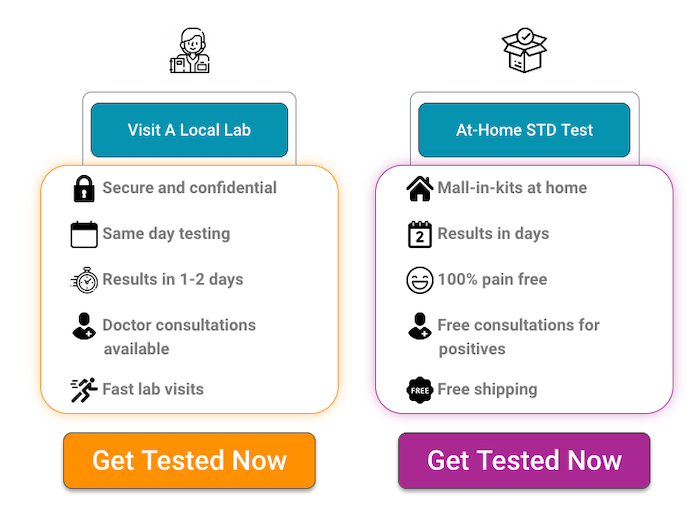Table of Contents
Human papillomavirus or HPV is one of the most common STDs (sexually transmitted diseases) in the US. In fact, in the US alone, there are about 5.5 million cases of HPV every year. This is according to data provided by the National Cancer Institute. You should know that there is currently no cure for HPV. This is why it’s imperative to get an HPV test when it’s time to do so. On that note, let’s take a closer look at HPV below.
What Is HPV?
This type of viral infection is the main cause of warts and different types of cancer, especially cervical cancer. HPV is mostly known to cause mucous or skin membrane growths. If left untreated, there are chances of it being a risk factor for the health. Therefore, you need to understand why it’s imperative to get an HPV test.
But then again, it’s not entirely true that all infections by HPV will lead to cancer. However, when you have been infected with genital HPV, there are chances of your cervix being prone to cancer. Not only that, but most cancers associated with the back of the throat, vagina, penis, and anus are known to be associated with that of an HPV infection.
A person can contract HPV through direct contact with the skin or sexual intercourse. If you were to be infected with HPV, you’d most probably be vaccinated for protection against the HOV strains that cause cervical cancer or genital warts.

Symptoms Of HPV
There are different symptoms that are associated with HPV. In some cases, your immune system will be able to fight off the HPV even before it can cause warts. However, when your immune system isn’t strong enough, you will notice different types of warts in your body, which are symptoms of HPV. Some of these are:
- Common warts
These are the types of warts that appear on your fingers or hands, which are raised, rough bumps. Most times, these warts are minor. However, there are also cases where they can be painful and lead to bleeding or injury.
- Genital warts
These warts appear like cauliflower bumps that are flat, occurring around the anus or vulva in women. Other times, these warts can also be seen on the cervix. Leaving it untreated for long may lead to cervix cancer.
- Flat warts
These warts can appear anywhere on the body. Being slightly raised and flat-topped lesions, flat warts can be seen in the beard area in men and on the legs in women.
- Plantar warts
When you have plantar warts, you’ll notice grainy, hard growths on the balls or heels of your feet. Naturally, these warts will cause discomfort and even pain to some extent.
Importance Of HPV Testing
One of the main reasons why it’s imperative to get an HPV test is the formation of cervical cancer. If you don’t already know, cervical cancer takes as long as 20 years to form after being infected with HPV. This means that you wouldn’t have the slightest clue of whether you have cervical cancer or not because there’ll be no noticeable symptoms.
If you’re a woman aged between the years of 21 and 65, it’s vital that you get tested for HPV every three years. For this, the procedure would be undertaking a Pap screening test, which is the most efficient way of detecting HPV. Since you already know that cervical cancer caused by HPV does not show symptoms, you need to be fully aware of what’s happening inside your body. Only then can you take care of your overall well-being and take necessary measures if need be.
Another reason why it’s imperative to get an HPV test is that if you happen to be infected with HPV and it’s precancerous, treatment can be provided with ease. Not only that, but early treatment in women also means that your life, including your womb, will be saved. There couldn’t be a better time than now to get yourself tested for HPV.
Is HPV vaccine important?
Just as you know why it’s imperative to get an HPV test, you should also know that getting vaccinated for HPV is important. The very fact that HPV is transmitted through sexual contact makes it even more susceptible for women to acquire it. As you may already know, there are not many vaccines available for viruses. And there couldn’t be greater news than the scientific breakthrough for the HPV vaccine!
Of course, it doesn’t mean that you won’t ever be infected with any type of HPV once you’re vaccinated. However, you should note that they are as much as 100% effective against the HPV strains that go on to cause cancers like cervical cancer. On the off chance that you’re infected with HPV-causing cervical cancer, you might have to undergo a colposcopy treatment.
No matter which type of HPV strain you might be infected with, you need to ensure that you get treated immediately. This is the only way you can protect yourself from any health hazard in the long run. Not only that, but you can also protect your partner or any other loved ones with whom you come into contact.
Just as it’s imperative to get yourself tested for HPV, you should also ensure that you have a serious discussion with your partner, especially when the relationship is new. This is the best way you can both keep each other from harm’s way and have a healthy and safe relationship.
Now that you know why it’s pertinent to get an HPV test, ensure that you don’t delay the testing process. If you do, you’re only bringing harm to yourself and your loved ones. Make sure to form a great relationship with your doctor so that you can be open and share your problems with them. The last thing you want is to feel awkward to share your grievances, which will only lead to complications to your health in the long run.


